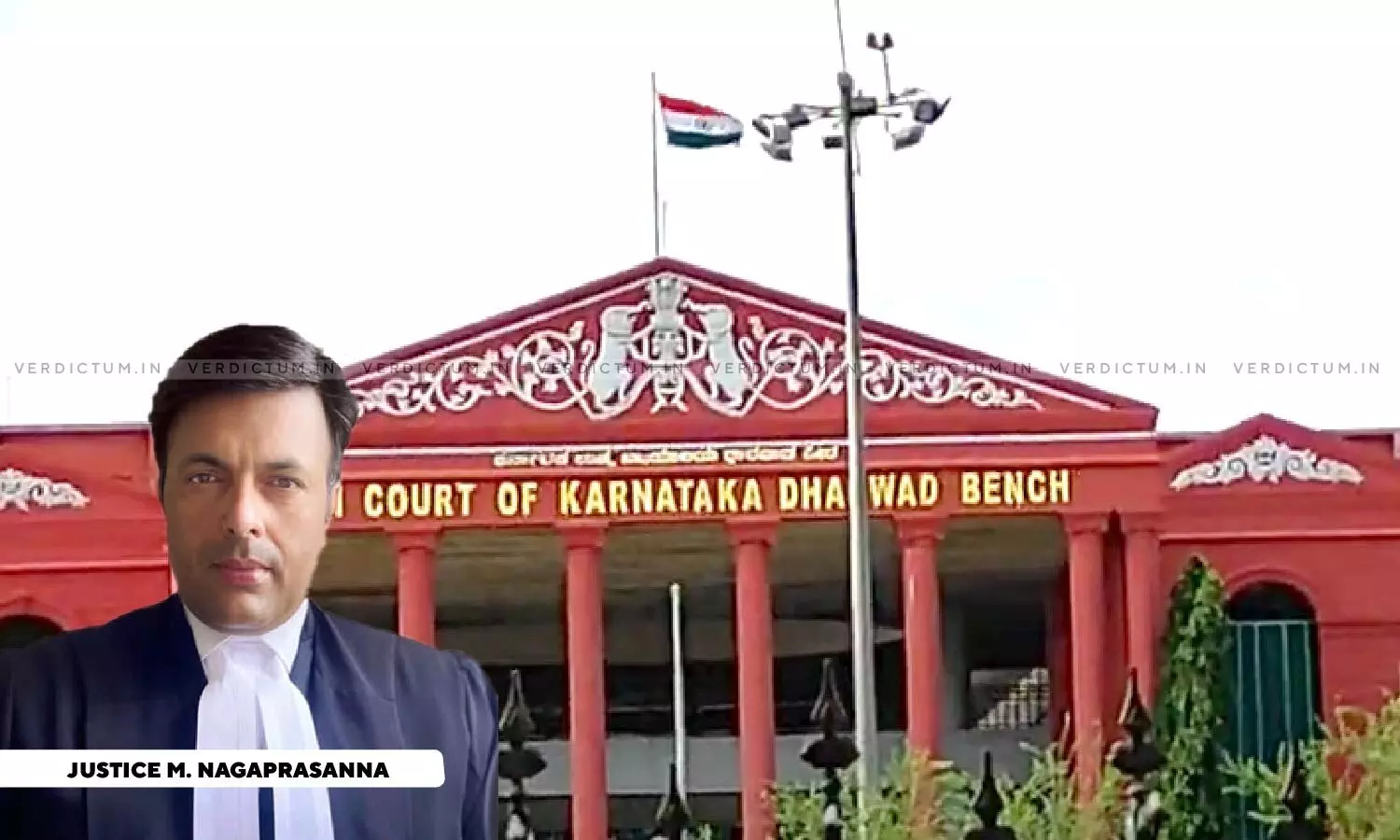
A Hexagenerian Cannot Be Left Tongue Tied: Karnataka High Court Permits Hearing Impaired Employee To Engage Advocate In Departmental Enquiry
 |
|The Karnataka High Court quashed an order issued by the respondents, which denied the petitioner's request to engage the services of a Legal Practitioner for defense in a departmental enquiry. The petitioner, facing challenges such as hearing disability, age (64 years), and the criminal case, submitted a representation, requesting permission to engage a Legal Practitioner to defend him in the departmental enquiry. This request was promptly denied by the respondents on the grounds that the Company's rules do not permit the engagement of an Advocate in such cases.
A Bench of Justice M. Nagapraasanna held that, “Above all, an employee, at the age of 63, who is to face a departmental enquiry along with the criminal trial becomes “tongue tied” and therefore he would require the assistance of a Legal Practitioner. The factors that are in favour of the petitioner for grant of such benefit far outweigh the tenor and purport of the Rule which prohibits it, more so in the light of the rules not being inflexible. Therefore, in the peculiar facts of the case, I deem it appropriate to permit the petitioner to be defended by an Advocate in the departmental enquiry, as “an hexagenerian cannot be left tongue tied”
The petitioner was an employee of the United India Insurance Company Limited and was a Divisional Manager at the relevant time. Prior to his retirement, two proceedings of a criminal case and a departmental enquiry, both related to the same set of facts were initiated against him.
The charge against the petitioner in the departmental enquiry was that he had settled several matters in violation of Company guidelines during a Mega Lokadalath event. The petitioner responded to the charge sheet but the Disciplinary Authority was not satisfied with his reply. As a result, an Enquiry Officer was appointed to conduct the enquiry, and a Presenting Officer was assigned to represent the Management's case. Petitioner’s request for engaging a legal practitioner to represent him was denied.
Subsequently, the petitioner approached the court seeking relief. The court granted an interim stay of further proceedings in the departmental enquiry. The respondents then sought the vacation of this interim order, leading to the matter being considered for a final decision based on the consent of both parties.
Advocate Vitthal S. Teli appeared for the Petitioner and Advocate Arun L. Neelopant appeared for the Respondents.
“In case the Presenting Officer is a Legal Practitioner the employee derives a right to be defended by an Advocate. This is the tenor of the Rule. The language of the rule is, the employee may not engage the Legal Practitioner for the purpose. Therefore, the provision though in the first blush would look mandatory, it is not that it is inflexible, it has to be interpreted on a case to case basis. In the considered view of this Court, it does not place an unambiguous embargo for engaging an Advocate as a Defence Assistant.”
The Court carefully considered the arguments presented by both sides and examined the relevant rules, specifically Rule 25(6) of the United India Insurance Company (conduct, discipline and appeal) Rules, 2014.
Rule 25(6) stated that an employee facing disciplinary proceedings may not engage a Legal Practitioner for defense unless the Presenting Officer is a Legal Practitioner. However, the Court interpreted this rule to allow for exceptions based on the specific circumstances of each case. It noted that the rule does not place an absolute prohibition on engaging an Advocate.
The Court added, “In case the Presenting Officer is a Legal Practitioner the employee derives a right to be defended by an Advocate. This is the tenor of the Rule. The language of the rule is, the employee may not engage the Legal Practitioner for the purpose. Therefore, the provision though in the first blush would look mandatory, it is not that it is inflexible, it has to be interpreted on a case to case basis. In the considered view of this Court, it does not place an unambiguous embargo for engaging an Advocate as a Defence Assistant.”
In light of the petitioner's hearing disability, age, financial hardship due to withheld retirement benefits, and the simultaneous criminal case, the Court found that the petitioner's case warranted an exception to the rule. The Court cited the precedent set in the case of Ramesh Chandra v. Delhi University, which recognized the importance of legal representation for employees facing departmental enquiries, particularly when the Enquiry Officer is legally trained.
As a result, the Court allowed the petitioner to be defended by an Advocate in the departmental enquiry, emphasizing that this permission should not be used to unduly delay the proceedings.
The Court quashed the impugned order, declared the petitioner's right to legal representation in the departmental enquiry, and emphasized the need for cooperation to conclude the proceedings efficiently.
Cause Title: T Ramesh Babu v. The Inquiry Authority & Ors.,[2023:KHC-D:9200]
Click here to read/download Order